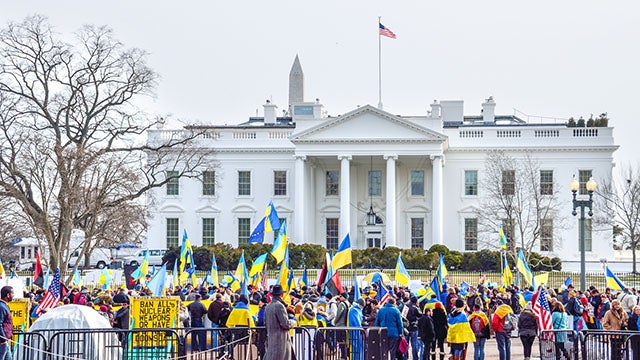José M. de Areilza is secretary general of Aspen Institute España.
Angela Merkel, the most powerful woman in the world, is preparing her exit from politics, faithful to the principles that have inspired her for 30 years: realism, caution, flexibility, sobriety, as well as a profound knowledge of the issues at hand and a deep moral commitment to human dignity. The chancellor ends a long trajectory of public service in order to facilitate the renewal of Germany’s Christian Democratic Union (CDU).
All over the world, strongmen are seizing power by employing simplistic slogans and blaming external enemies. This is their response to the complexities of economic globalization and the accelerated change of the digital revolution. In clear contrast, Merkel retires thinking of a superior good to serve and rejecting any addiction to power. Looking at the image of her political life, I would like to highlight the positive, which for me is predominant.
During her youth in East Germany, she learned to live with extreme caution and austerity. Her father was a Lutheran pastor who, against the current, had migrated with his family from Hamburg. Merkel chose to become a scientist, focusing on research until the year before unification when she made the leap to politics. Helmut Kohl was her mentor and appointed her Minister for Women and Youth, the beginning of an unstoppable career. In Berlin, she remained an outsider, lived frugally, and often went unnoticed. She turned this distance from the traditional elites into an advantage, surrounded herself with a small circle of loyalists and applied a scientific and pragmatic approach to problem-solving.
When Kohl fell from power due to the irregular funding from the CDU, Merkel won the battle for party leadership. Many considered her a transitional figure. In 2005, she obtained 1 percent more votes than the Social Democrats and was able to start the first grand coalition led by a woman. It was the beginning of a long journey in power, which she revalidated three times. Merkel has never been seduced by grand strategic visions. If there is a characteristic that defines her leadership through her 13 years in power, it is her ability to lead against adversity. Without a favorable political cycle in Europe, she preferred to listen and negotiate until the end. She put together realistic and nuanced plans to address the issues of the next day.
At the same time, she incorporated into the conservative credo the concern for the environment and consistently defended Atlantic values. In a European Union in which, as Sir Paul Lever says, “we all speak German now,” the chancellor has courageously confronted a succession of convulsions that have questioned integration itself. In 2008, faced with the triple threat of debt, banks, and growth, Merkel alone remained at the helm of the EU. The perfect storm threatened to take down the common currency. Faced with the problems of a euro without an architecture to survive difficult times, she promoted new institutions, rules, and financing mechanisms. The chancellor confronted her government and the German public and stopped the abrupt exit of Greece, which could have torn down the entire building. She offered financial solidarity — she spent on bailouts the equivalent of an annual budget for her country — in exchange for restoring the credibility of the currency through reforms and adjustments by debtor countries in the EU. The other hero in this story was Mario Draghi. Between the two leaders, the euro was redesigned. There is still much to be done, but the German-Italian couple left a path traced to achieve its irreversibility.
The figure of Merkel became a synonym for the protection and care of its voters who in 2013 put the word “mutti” (German for mummy) on billboards and posters. But the headwind did not stop blowing. The chancellor worked with Barack Obama to stop Vladimir Putin. She had to stand up to the Brexit hurricane, described by Hugo Dixon as the first manifestation of populism in the EU. She grew as a global leader after the shock of the election of Donald Trump, an American president who does not identify himself with the values of liberal democracies.
The migration crisis has been Merkel’s latest test. To address it, she abandoned at a decisive moment her incremental leadership and her transactional style. During 2015, the arrival of more than one million newcomers to Europe put enormous pressure on the free movement of people within the EU. Angela Merkel set out to defend the human dignity of refugees, subject to xenophobic attacks, but also to ensure that international norms and European asylum pacts were applied. She wanted to avoid the problems that Germany, with its generous reception system, would have to face to integrate hundreds of thousands of migrants. This tension between the two objectives was broken in September 2015, when she stated dramatically that if Germany was not capable of receiving refugees, it was no longer her country. She called for generosity and high-mindedness so as not to close the border and avoid a humanitarian crisis. Her moral leadership was recognized by many, inside and outside her country, but she faced the opposition of her own party, which lost votes as refugees arrived in the country. Earlier this year, she struck a deal to preserve the government that essentially ended this open-door migration policy.
In the elections of 2017, the ultra-right became the third most voted option. President Steinmeier’s mediation succeeded in getting Merkel to put together and lead her fourth government in March 2018. Soon, it is possible the last openly pro-European German chancellor will leave the stage. Few times in contemporary history has a person had so many responsibilities in such adverse circumstances and has confronted them with equal intelligence and seriousness. Contaminated by the excess of realism that governs politics, Merkel does not embody a perfect ideal. But her trajectory and style of power must be remembered. It is a story of public virtue for the furious world we inhabit.
The views and opinions of the author are his own and do not necessarily reflect those of the Aspen Institute.


